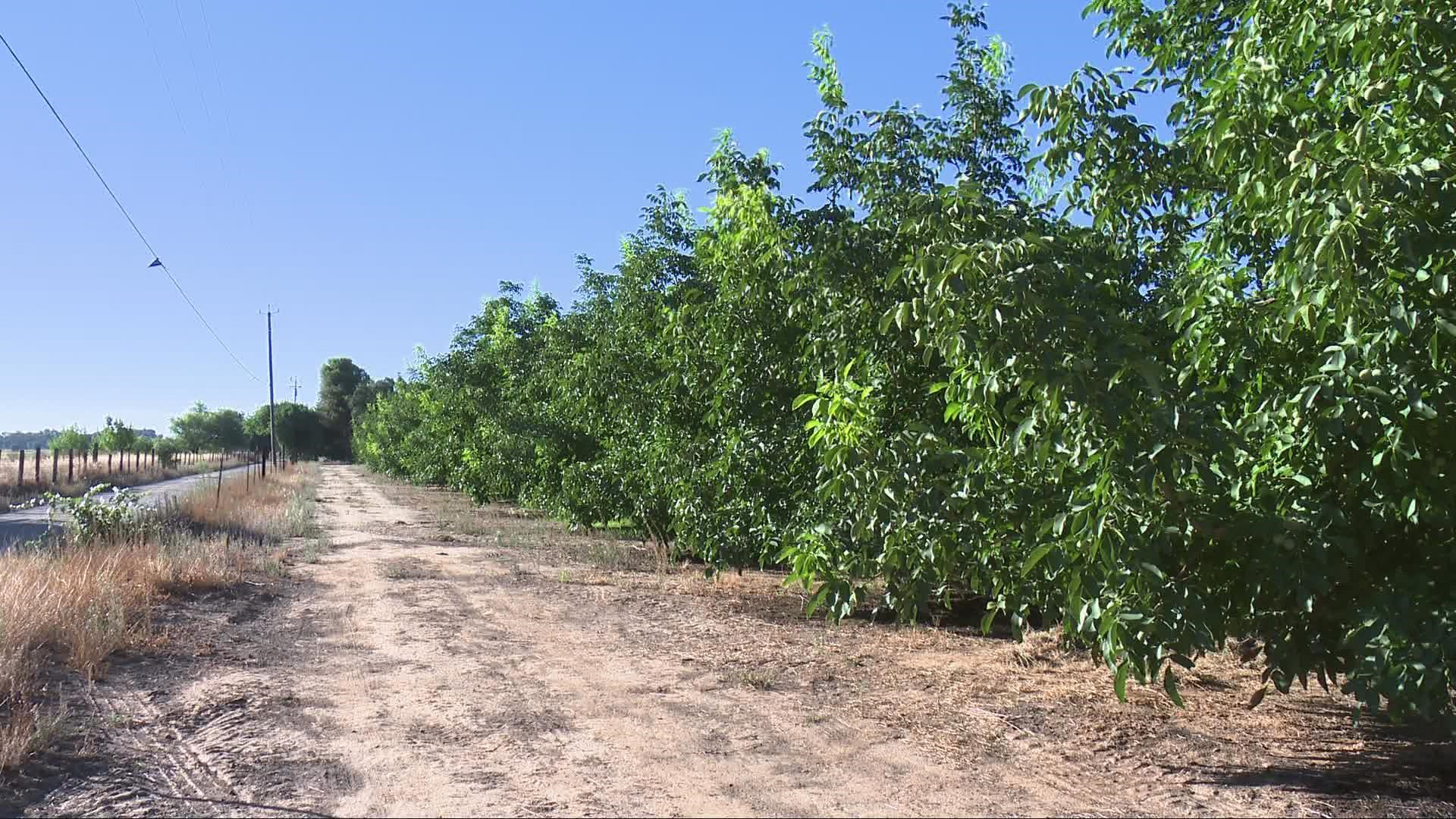ELK GROVE, Calif. — Outside Elk Grove, Mitchell Farms has survived war, drought and depression to supply Californians and the rest of the nation with food since the 1850s.
But it’s inflation that has fifth generation farmer Ken Mitchell wondering if the legacy ends here.
“Costs are getting so high on everything... how do I pass that on to my boys? How do they take over the family farm? Do they want to take over the family farm? So the dynamics are changing. We have investment companies coming in and buying farm ground and I may not be producing your food in the future,” said owner of Mitchell Farms, Ken Mitchell.
He says farms are struggling because they are price takers not price makers.
He’s not raising the price on the walnuts he grows and he’s not passing along the cost it takes to grow them to the consumer. If you see a bag of walnuts in the market for $5, only 80 cents per pound is going back to Mitchell Farms.
“The American public doesn’t understand that your food is made with diesel and I say that because it takes a tremendous amount of labor in producing whatever you do in agriculture, diesel running your tractors, transportation,” said Mitchell.
The state of California recognizes agriculture was already struggling with the worldwide market, drought, and now inflation. So, what resources are the California Department of Finance offering?
“A one-year freeze on the state share of diesel fuel tax so that we can hopefully reduce some of the cost of hauling those agricultural goods to market as well as good all over the state,” said H.D. Palmer, Deputy Director for External Affairs at the California Department of Finance.
Mitchell says California farmers were already struggling to compete due to higher regulatory costs, the price of land, water and now gas against the costs of those things in the Midwest. He hopes what’s happening right now will start the conversation about where you want your food coming from.



















